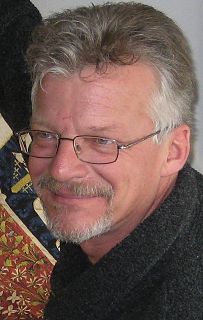A Quote by George Savile, 1st Marquess of Halifax
To the question, What shall we do to be saved in this World? there is no other answer but this, Look to your Moat.
Related Quotes
Let us re-adopt the Declaration of Independence, and with it, the practices, and policy, which harmonize with it. Let north and south - let all Americans - let all lovers of liberty everywhere - join in the great and good work. If we do this, we shall not only have saved the Union; but we shall have so saved it, as to make, and to keep it, forever worthy of the saving. We shall have so saved it, that the succeeding millions of free happy people, the world over, shall rise up, and call us blessed, to the latest generations.
Long distances used to be a moat that both insulated and isolated people from workers on the other side of the world. But every day, technology narrows that moat inch by inch. Every person in the world is on the verge of becoming both a coworker and a competitor to every one of us ... Technological change is going to reach out and sooner or later change something fundamental in your business world.
We are justified freely, for Christ’s sake, by faith, without the exertion of our own strength, gaining of merit, or doing of works. To the age-old question, ‘What shall I do to be saved?’ the confessional answer is shocking: ‘Nothing! Just be still; shut up and listen for once in your life to what God the Almighty, creator and redeemer, is saying to his world and to you in the death and resurrection of his Son! Listen and believe!’
So shall we come to look at the world with new eyes. It shall answer the endless inquiry of the intellect, — What is truth? and of the affections, — What is good? by yielding itself passive to the educated Will. ... Build, therefore, your own world. As fast as you conform your life to the pure idea in your mind, that will unfold its great proportions. A correspondent revolution in things will attend the influx of the spirit.
If I was to ask you tonight if you were saved? Do you say 'Yes, I am saved'. When? 'Oh so and so preached, I got baptized and...' Are you saved? What are you saved from, hell? Are you saved from bitterness? Are you saved from lust? Are you saved from cheating? Are you saved from lying? Are you saved from bad manners? Are you saved from rebellion against your parents? Come on, what are you saved from?
Look. This is your world! You can't not look. There is no other world. This is your world; it is your feast. You inherited this; you inherited these eyeballs; you inherited this world of color. Look at the greatness of the whole thing. Look! Don't hesitate - look! Open your eyes. Don't blink, and look, look - look further.
To be a scientist you have to be willing to live with uncertainty for a long time. Research scientists begin with a question and they take a decade or two to find an answer. Then the answer they get may not even answer the question they thought it would. You have to have a supple enough mind to be open to the possibility that the answer sometimes precedes the question itself.
Wes Clark is a man of whom you can ask a question, and he will look you directly in the eye, and give you the most truthful and complete answer you can imagine. You will know the absolute truth of the statement as well as the thought process behind the answer. You will have no doubt as to the intellect of the speaker and meaning of the answer to this question....So you can see, as a politician, he has a lot to learn.


































